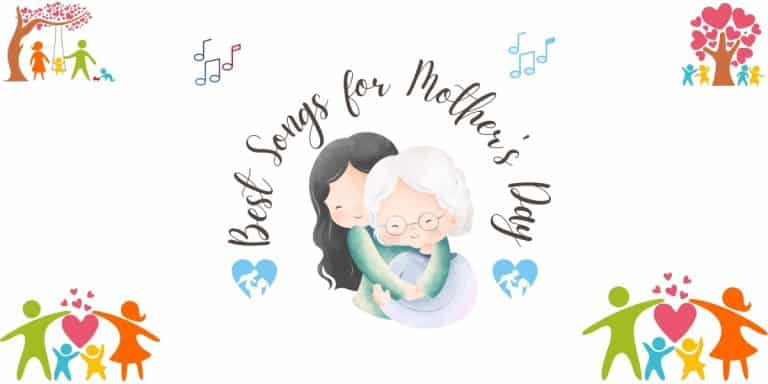19 Signs You Grew Up With An Overly Critical Parent
Recognizing the signs of being raised by a highly critical parent can help you face specific patterns of behavior you may have adopted with time. Understanding your upbringing can make you get to know yourself better, perhaps become a better parent if you have children, and help you break free from the toxic circle. Here are the common signs you grew up with parents who were too critical. With awareness and practice, you can improve yourself and advance your goals.
Fear of failure

One of the most essential life lessons is to learn to fall and get up. However, children whose parents were overly critical often tried to avoid mistakes or were punished severely if they made them. Many took this pattern into adulthood, which is usually followed by questioning every move, which is exhausting.
Perfectionism

When faced with the fear of failure, perfection seems like a natural response, a self-defense mechanism. However, perfectionism can make life much more challenging and dramatically impact everyday decision-making. It is draining and can lead to missed deadlines and other struggles at work and in friendships.
Overthinking

Self-doubt and overthinking are other mechanisms you might have adopted as a result of living with overly critical parents. Analyzing, re-analyzing, and second-guessing your every decision gives you a false sense of avoiding mistakes. Additionally, it gives you an idea that you will prevent further errors by overthinking and overanalyzing previous experiences. Again, this is time-consuming and overwhelming, with numerous negative impacts on your everyday life.
Avoidance of conflict

Standing up for yourself might seem like a waste if you have to face conflict. Instead, people who grew up with critical parents got used to walking on eggshells, so avoiding conflict, even when it goes beyond their best interests, is common. Being a peacekeeper can lead to another important adopted behavior – people pleasing.
People-pleasing behavior

With your need to avoid conflicts while attacking your worth to your parents, it is not uncommon for you to develop people-pleasing behavior. Putting your dreams and wishes second comes naturally, but it is robbing you of getting what you need and could lead to others taking advantage of your upbringing.
Constant apologizing

People with overcritical parents tend to apologize constantly, and if you ask them to stop, they will likely apologize again. This behavior is typical for adults whose parents kept insisting they were in the wrong, even if that wasn’t the case. And since they learned to be peacemakers, they continued apologizing well into adulthood.
Low self-esteem

Many people whose parents constantly criticize them have low self-esteem. If you analyze your every move and struggle with self-doubt, your self-esteem suffers significant punches, and it can be an obstacle to how you see your worth and how others perceive you.
The need to prove yourself

Not everyone raised with critical parents needs to prove themselves constantly, but it is possible you developed this habit. Feeling you are not “enough” might follow you around, and regardless of how far you get in life, it feels like there’s always more to achieve. It might take time, but understanding that this is a learned behavior can be reversed to the extent that it can be liberating.
Overly critical of others

Just like hurt people hurt others, overly criticized people tend to blame others harshly. This could be a defense mechanism due to low self-esteem and self-worth or merely an acceptance that people always make mistakes, just like you believed you did. It is a kiss of death for romantic relationships and friendships and can cause trouble in school and work.
Self-criticism

A child of an overly critical parent can carry this behavior into adulthood through an inner voice constantly scrutinizing and making achievements feel less than deserved. This need to criticize yourself is nothing but an echo of childhood words that stuck with you and are only making one’s life miserable.
Awkward reactions to compliments

If you don’t know how to accept a compliment and deflect instead of saying “thank you,” it could be a sign that your parents were overly critical. And it goes beyond compliments: you might struggle with social anxiety since you struggle with self-doubt and have that voice always telling you that you will make a mistake.
Struggle with self-acceptance

When you teach yourself to think you’re not enough and that you are always making mistakes, struggling with self-acceptance is common. Instead, you seek validation from others because self-acceptance would require facing the harsh reality of being raised by overly critical parents.
Defensiveness

One of the signs your parents were too critical could be a constant need to defend your actions, even when no one’s attacking you. You are in the self-protection mode, which can cause troubles in social circles and romantic relationships. Being on the defense only heightens your anxiety, and the reason behind it is the need to shield away from criticism.
Issues with expressing your feelings

Overcritical parents likely taught you to hide your feelings because you wanted to avoid conflict and please them. When you feel your emotions should take a backseat, this can lead to trouble expressing your feelings, which can burden romantic relationships and friendships. Learning about healthy ways to express your needs is not easy, but it is healthy and will help you grow.
Mental health issues

Some people who grew up in overly critical environments may face depression caused by the amount of negative self-talk and constant criticizing their actions. What makes things worse is that a person could further condemn their feelings because they were not correctly taught to deal with emotions, positive or negative.
Trust issues

Distrust, particularly in intimate relationships, could be another sign that your parents mastered criticism, even if they only wanted the best for you. If you have a hard time accepting something as common as a compliment and don’t know how to express your emotions, it is not a coincidence that you’re questioning people’s motives.
The need to prove yourself

When people don’t feel good enough, they try to compensate for their feelings of inadequacy by overworking or constantly seeking external validation and approval from others. Other people’s validation can serve as a patch to mask all the self-doubt and self-esteem issues.
Strong sense of responsibility

If you faced constant criticism, you could struggle with a sense of overwhelming responsibility. For example, you might try to do more than you can because you want to do everything to avoid criticism. If you don’t do what you believe is your best, you could feel toxic guilt, which further leads to self-blame and anxiety.
Avoid the blaming game

Critical parents are controlling and can be emotionally abusive. However, some were brought up believing that an authoritarian parental style will turn a child into a strong and capable adult. Regardless, it would be best to avoid playing the blaming game and take control over your life, whether through self-help books, therapy, or any other method.
15 Traits of Adults Who Experienced Emotional Neglect in Childhood

Not enough love as a kid can mess people up long-term, so it’s key to spot and fix emotional neglect:
15 Traits of Adults Who Experienced Emotional Neglect in Childho







